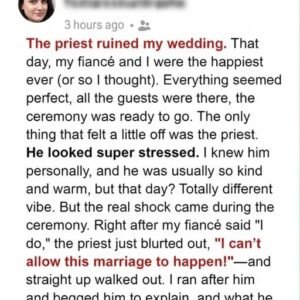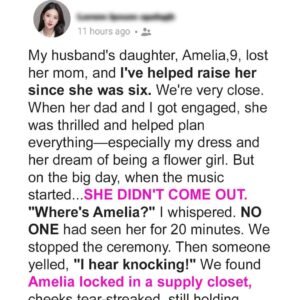The majority of news anchors in the fast-paced world of live television adhere strictly to the script. However, occasionally an event occurs that deviates from the norm. This is exactly what one BBC news presenter did recently, and it sparked a public discussion that is still going strong in the UK and beyond.
Veteran BBC journalist Martine Croxall took a silent but firm stance during a routine broadcast by remaining silent. A broader national discussion about language, identity, and free speech has now been sparked by that minor ruling.
Let’s examine what took place, why it matters, and what it tells us about the modern world.
Without saying much, a moment that said it all
It was just another news segment for the weekend. Respected BBC anchor Croxall, who has worked for more than 30 years, was calmly giving an update on the UK’s rising temperatures and the risks that extreme heat poses, especially to vulnerable populations like the elderly and people with medical conditions.
Then came the scene that made a lot of people stop watching.
Croxall started using the gender-neutral term “pregnant people,” which is becoming more and more common in official reports and inclusive language standards, while reading from the teleprompter. However, she stopped in the middle of her statement, turned to face the camera, and changed the wording to “women.”
“Those with pre-existing health conditions, pregnant women, and the elderly should take precautions,” she said, quoting Malcolm Mistry, who participated in the study.
The change was subtle. Only one word was altered. However, the emphasis, tone, and expression in her eyes spoke for themselves.
Backlash — and Support — Comes Next
Social media sites erupted in responses almost immediately. While some applauded Croxall for not using the term “pregnant people,” others charged that she was undermining inclusivity.
Author J.K. Rowling was one of her most well-known supporters, posting on X (formerly Twitter) that she had a new favorite BBC presenter.
Rowling has been an outspoken advocate for women’s rights and gender language, frequently igniting controversy with her support of biological sex as the foundation of womanhood.
Croxall’s decision put her right in the center of that same national, and increasingly international, debate.
Why Is the Phrase “Pregnant People” Used?
Many advocacy groups and public health organizations use the term “pregnant people” to recognize that not all women who identify as cisgender—those assigned female at birth—can become pregnant. Some non-binary people and transgender men become pregnant as well.
The use of gender-neutral terminology in official and medical contexts is seen by proponents of inclusive language as a matter of equity, respect, and recognition.
Some people, especially those who support women’s rights, feel that this change in terminology erases what it means to be a woman. For them, the biological reality and distinctive experiences of being a woman are eliminated when “pregnant women” are substituted with “pregnant people.”
Croxall has previously expressed strong views on this matter, publicly declaring at a panel discussion that “sex is binary and immutable.”
Croxall Expresses
Croxall responded to the attention following the broadcast by posting on social media:
“I want to express my gratitude to everyone who, for whatever reason, has decided to follow me today. It’s been quite the journey.
She said she is “prepared” for a discussion with her superiors in the event that BBC management determines her departure from the teleprompter was improper, acknowledging that she is aware of the potential professional repercussions.
In a media landscape where following scripts and maintaining objectivity are frequently expected, it’s a daring move, particularly at a public broadcaster like the BBC.
A Country Split on Words
Croxall’s on-air moment has highlighted a more profound divide that is currently evident in homes, workplaces, classrooms, and legislatures throughout the United Kingdom, the United States, and numerous other countries.
Her choice is seen by some as a defense of biological clarity and free speech. Others see it as an indication of a failure to change to language that is respectful and inclusive of transgender and non-binary communities.
Beyond the politics, however, many people witnessed a moment of personal integrity, especially older viewers. Croxall did not yell or yell. She kept her identity a secret. She just made the decision to say what she thought was true in the moment.
What It Signifies for All of Us and Journalism
Important questions are raised by this incident:
If a news anchor disagrees with the official language, should they be permitted to change it while on air?
In a time when linguistic conventions are changing, can journalism remain objective?
How can we honor transgender people’s lived experiences while simultaneously respecting biological facts?
There are no simple solutions. However, one thing has become evident from Croxall’s decision: these are not merely theoretical discussions. They have an impact on how we relate to one another, communicate, and define respect in both policy and daily life.
A Little Word, a Huge Impact
Martine Croxall’s actions were considered subtle by some. Only one word was altered. Many others, however, saw it as a turning point that encapsulated the conflict between changing language and unchanging truth.
At the age of 56, Croxall, who had worked in broadcasting for thirty years, made a silent choice that had a big impact.
Regardless of your opinion of her decision, her cool defiance has spurred a larger discussion that is far from over.
We are all being prompted to consider our speech patterns, our beliefs, and the boundaries between clarity and compassion as language and cultural norms continue to change.
Perhaps that’s the true lesson here: that one word can still mean everything, even in a world as fast-paced as live news.





